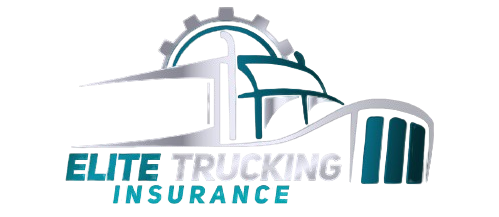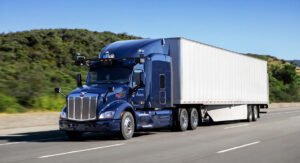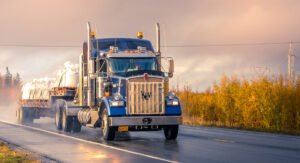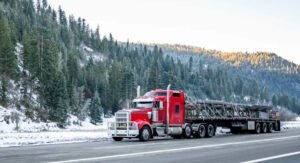General Liability Insurance
General Liability Insurance protects your business in the event of accidents that cause bodily injury or property damage to third parties. This coverage is essential for covering legal expenses and settlements resulting from accidents involving your trucks.
Commercial Auto Insurance
Commercial Auto Insurance is specifically tailored to the unique needs of your trucking fleet. It covers damages to your vehicles and third-party liability claims. Whether it's a minor fender-bender or a major collision, having the right coverage is crucial to getting your trucks back on the road.
Cargo Insurance
Cargo Insurance safeguards the goods you transport. Accidents happen, and cargo can be damaged or lost during transit. With cargo insurance, you can rest assured that you won't be left with the financial burden of replacing lost or damaged cargo.
Workers' Compensation Insurance
Workers' Compensation Insurance ensures that your employees receive compensation for injuries sustained on the job. This coverage not only provides financial support to your injured workers but also protects your business from potential lawsuits related to workplace injuries.
Umbrella Insurance
Umbrella Insurance provides additional coverage that goes beyond the limits of your primary insurance policies. When a catastrophic accident occurs, this coverage kicks in to provide an extra layer of protection, ensuring that your business assets are secure.

Legal Requirements
Trucking companies must adhere to legal requirements, including those set forth by the Federal Motor Carrier Safety Administration (FMCSA) and state-specific regulations. Compliance with these regulations is crucial for maintaining your insurance coverage and avoiding legal complications.
In the United States, the FMCSA requires a minimum level of liability insurance for trucking companies, which varies based on the type of cargo being transported. It's essential to understand and comply with these legal requirements to avoid penalties and potential business disruptions.
Common Causes of Trucking Accidents
Understanding the common causes of trucking accidents can help you implement preventive measures to protect your drivers and assets. Some of the most frequent causes include:
Distracted Driving
Distracted driving is a leading cause of accidents, not only for passenger vehicles but also for commercial truck drivers. Ensure that your drivers are educated about the dangers of distracted driving and implement strict policies against it.
Fatigue
Driver fatigue is a significant risk factor. Long hours on the road can lead to drowsiness and impaired judgment. Implement schedules that allow for sufficient rest breaks and consider investing in fatigue-monitoring technology.
Mechanical Failures
Regular vehicle maintenance is crucial to preventing accidents caused by mechanical failures. Create a strict maintenance schedule and ensure that your fleet is in top condition.
Weather Conditions
Trucking in adverse weather conditions requires extra caution. Train your drivers to handle various weather scenarios and equip your vehicles with the necessary safety features, such as anti-lock brakes and traction control systems.
Road Hazards
Navigating road hazards can be challenging. Invest in driver training programs that teach your drivers how to react to unexpected obstacles and road conditions.
The Importance of Prompt Reporting
Promptly reporting accidents and incidents is vital. Failing to do so can lead to complications with your insurance coverage. Timely reporting ensures that the insurance company can assess the situation and provide support as needed.
When an accident occurs, it’s crucial to:
- Ensure the safety of everyone involved: First and foremost, ensure the safety of your drivers and others involved in the accident. This may involve calling for medical assistance if necessary.
- Exchange information: Collect contact and insurance information from all parties involved in the accident, as well as any witnesses.
- Document the scene: Take photographs of the accident scene, vehicle damage, and any relevant road conditions. Detailed documentation can be invaluable during the claims process.
- Notify law enforcement: In many cases, it’s necessary to report accidents to the police. Be sure to comply with all legal requirements regarding accident reporting.
- Contact your insurance provider: Notify your insurance company as soon as possible. Prompt reporting helps expedite the claims process and ensures that you receive the support you need.
Filing an Injury Claim
If an accident results in injuries, follow these steps to file an injury claim:
- Gather Necessary Information: Collect all relevant details, including accident reports, witness statements, and medical records. The more information you have, the smoother the claims process will be.
- Notify the Insurance Company: Contact Elite International Insurance Services as soon as possible to initiate the claims process. Provide all the gathered information to your claims adjuster.
- Document the Incident: Keep a comprehensive record of all aspects of the incident, including photos and written descriptions. This documentation will be essential during the evaluation process.
- Consult with Legal Counsel (if necessary): In complex cases, it may be advisable to consult with an attorney who specializes in trucking accident cases. They can help protect your rights and navigate legal complexities.

Coverage for Injury Claims
Elite International Insurance Services provides coverage for various aspects of injury claims, ensuring that your business and employees are protected:
- Medical Expenses: Coverage for medical bills resulting from the accident. This includes hospital stays, surgeries, and ongoing medical treatments.
- Lost Wages: Compensation for income lost due to injuries sustained in the accident. This coverage helps employees maintain financial stability during their recovery.
- Rehabilitation Costs: Support for rehabilitation and therapy. Injured employees may require physical therapy, occupational therapy, or other forms of rehabilitation to regain their functionality.
- Pain and Suffering: Compensation for the physical and emotional toll of injuries. This coverage acknowledges the pain and suffering experienced by injured individuals.
The Claims Process
The claims process typically involves several key steps:
- Investigation: The insurance company initiates an investigation to determine the cause of the accident and assess liability. This may involve interviews with drivers, witnesses, and experts.
- Evaluation: Experts assess the extent of damages, including medical expenses, lost wages, and other related costs. The goal is to determine a fair settlement amount.
- Settlement Negotiations: Once the investigation and evaluation are complete, the insurance company and involved parties enter into settlement negotiations. The goal is to reach a fair and equitable resolution that compensates the injured parties adequately.
- Litigation (If Required): In rare cases where settlement negotiations fail to produce a satisfactory outcome, a lawsuit may be necessary. This involves legal proceedings, and both parties present their cases in court.
Preventing Trucking Accidents
Prevention is the best way to manage risk and protect your drivers and assets. Consider implementing the following strategies:
- Driver Training Programs: Invest in comprehensive driver training programs that cover safe driving practices, defensive driving techniques, and compliance with safety regulations. Regular refresher courses can help reinforce these critical skills.
- Vehicle Maintenance: Regularly maintain and inspect your vehicles to ensure they are in optimal working condition. This includes routine checks of brakes, tires, steering, and all safety-related systems.
- Safety Protocols: Develop and enforce strict safety protocols within your organization. This includes procedures for pre-trip inspections, safe loading and unloading practices, and emergency response plans in the event of accidents.
- Telematics and Monitoring Systems: Embrace technology to monitor and improve driver behavior. Telematics systems can provide real-time data on driver performance, allowing you to identify areas for improvement and implement corrective measures.
Resources and Support
Elite International Insurance Services offers a range of resources and support services to assist you throughout the insurance and claims process:
- Claims Adjusters: Our experienced claims adjusters are ready to help you through every step of the process. They will work closely with you to ensure that your claims are handled efficiently and fairly.
- Legal Assistance: Access to legal experts who specialize in trucking accident cases. They can provide guidance on complex legal matters and ensure that your rights are protected.
- Safety Consultants: Our safety consultants can help you implement best practices and improve safety measures within your organization. They will work with you to develop customized safety protocols and provide training for your drivers.
FAQ - Frequently Asked Questions
What are the legal requirements for trucking insurance?
Legal requirements for trucking insurance vary by state and the type of cargo you transport. The Federal Motor Carrier Safety Administration (FMCSA) also sets minimum insurance requirements. It’s essential to understand and comply with these regulations to avoid legal issues.
What is Workers' Compensation Insurance, and why is it crucial for trucking companies?
Workers’ Compensation Insurance provides compensation to employees injured on the job. It’s crucial for trucking companies to protect their employees and themselves from potential lawsuits related to workplace injuries.
How can I prevent accidents in my trucking company?
Accident prevention involves comprehensive driver training programs, regular vehicle maintenance, enforcing safety protocols, and using telematics systems to monitor and improve driver behavior.
What should I do immediately after an accident occurs?
After an accident, ensure the safety of everyone involved, exchange information with other parties, document the scene, notify law enforcement if necessary, and contact your insurance provider promptly.
Why is prompt reporting of accidents and incidents important?
Prompt reporting is essential to expedite the claims process and ensure that you receive the support you need. Delayed reporting can lead to complications with your insurance coverage.
How does Umbrella Insurance work, and when is it necessary?
Umbrella Insurance provides additional coverage beyond the limits of your primary insurance policies. It’s necessary when you want an extra layer of protection in case of catastrophic accidents that exceed your primary policy limits.
What is the role of claims adjusters in the claims process?
Claims adjusters are responsible for investigating and evaluating claims. They work closely with policyholders to ensure that claims are handled efficiently and fairly.
How can Elite International Insurance Services help with injury claims?
Elite International Insurance Services provides coverage for medical expenses, lost wages, rehabilitation costs, and pain and suffering related to injury claims. Our experienced team guides you through the entire claims process.
What should I look for in a driver training program?
A comprehensive driver training program should cover safe driving practices, defensive driving techniques, compliance with safety regulations, and provide regular refresher courses to reinforce skills.
How can I access the legal assistance provided by Elite International Insurance Services?
If you require legal assistance related to a trucking accident, simply reach out to Elite International Insurance Services, and we will connect you with legal experts who specialize in trucking accident cases.
Conclusion
In the high-stakes world of trucking, comprehensive insurance coverage and effective injury claim management are non-negotiable. Elite International Insurance Services is your partner in navigating the complexities of trucking insurance and ensuring that your business remains protected.









